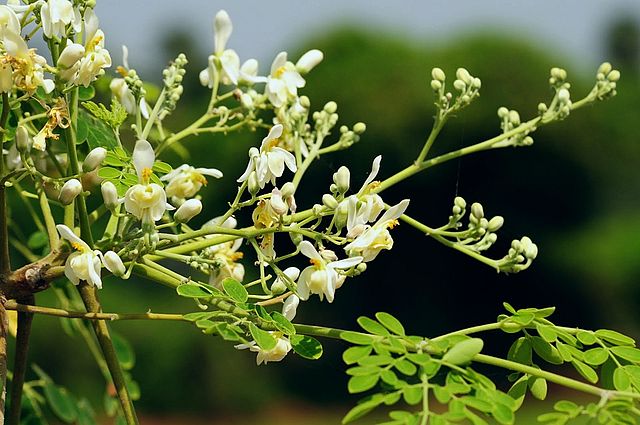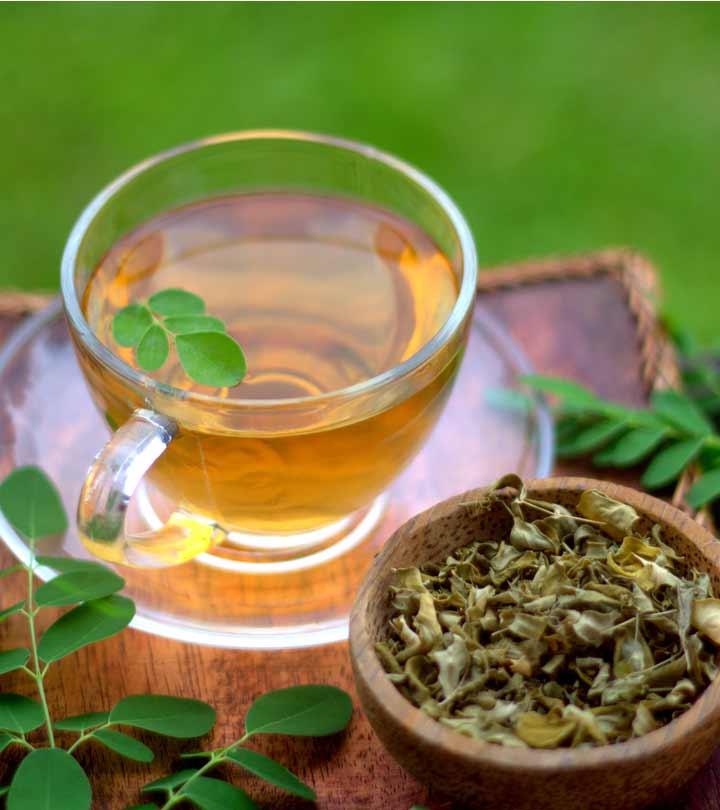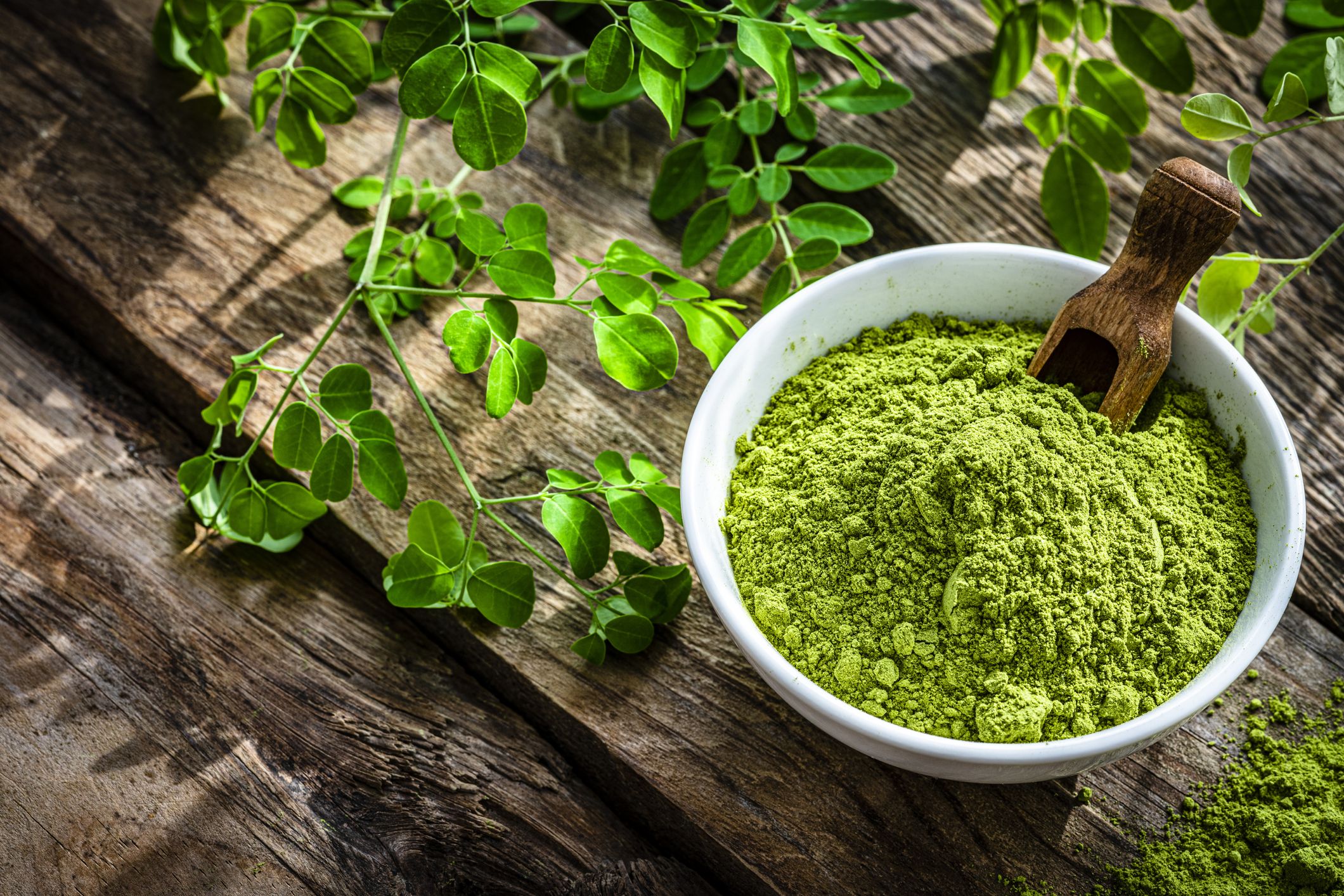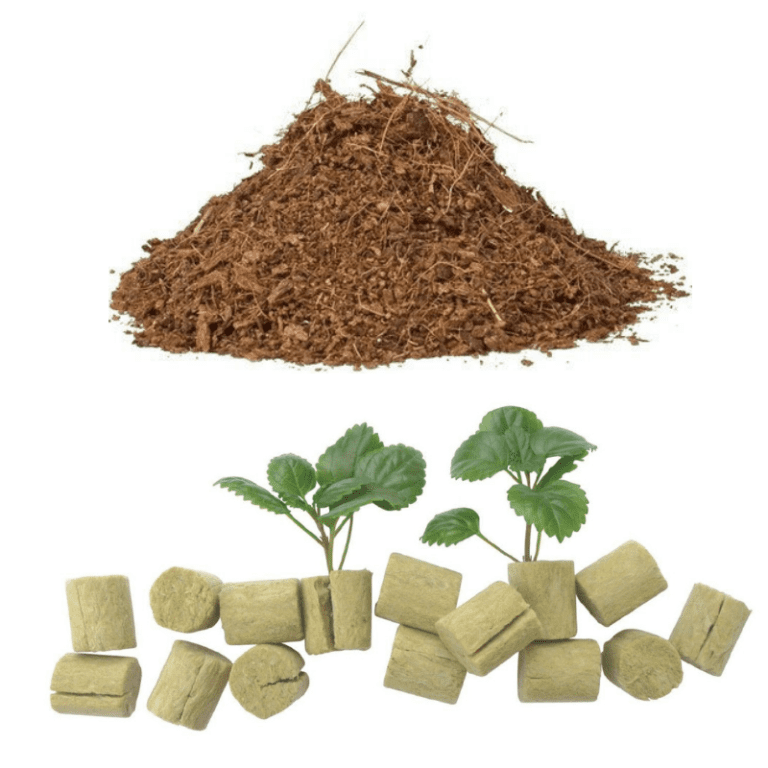Unveiling Moringa: The Majestic Drumstick Tree
Hey there, curious minds! Ever heard of the majestic drumstick tree, also known as Moringa? Prepare to be amazed by this powerhouse of nutrition and wellness! From its leaves packed with vitamins to its seeds rich in antioxidants, Moringa is a true superfood. But wait, there’s more! Did you know that Moringa has been used for centuries in traditional medicine for its healing properties? Join us on a journey to uncover the secrets of this incredible tree. Get ready to boost your health and vitality with Moringa! Stay tuned for a deep dive into the wonders of this green gem.Ready to discover the magic of Moringa? Let’s dive in!
Table of Contents
The Health Benefits of Moringa: A Comprehensive Guide
Moringa, a plant native to the tropics, has gained considerable attention in recent years for its numerous health benefits.

Packed with essential nutrients, vitamins, and minerals, it has been hailed as a superfood for overall well-being. From its leaves to its seeds, every part of the moringa tree offers unique health-enhancing properties.
- Nutritional Profile: Moringa is rich in essential nutrients like vitamins A, C, and E, along with calcium, iron, and potassium, crucial for overall health.
- Antioxidant Content: Moringa is a significant source of antioxidants that protect the body from free radicals and oxidative stress, promoting well-being.
- Medicinal Properties: Traditional medicine systems utilize moringa for its anti-inflammatory, antimicrobial, and analgesic properties.
- Health Benefits: Research indicates that moringa may positively impact conditions such as diabetes, heart health, and digestive disorders.
The following table explains the health benefits of moringa:
| Health Benefit | Quantitative Value |
|---|---|
| 1. Nutrient Content | – High in Vitamin C: 157 mg per 100 grams. |
| – Rich in Vitamin A: 7564 IU per 100 grams. | |
| – Contains Calcium: 185 mg per 100 grams. | |
| 2. Antioxidant Properties | – ORAC value: 157,000 μmol TE/100g. |
| 3. Anti-Inflammatory Effects | – Contains anti-inflammatory compounds. |
| 4. Blood Sugar Regulation | – Helps lower blood sugar levels. |
| 5. Cholesterol Reduction | – Supports lowering of LDL cholesterol levels. |
| 6. Digestive Health | – Rich in fiber: 2.0 g per 100 grams. |
| 7. Immune System Support | – Boosts immune function with its nutrients. |
As we delve deeper into the world of moringa, let’s explore the specific health benefits offered by its leaves, seeds, oil, powder, and tea. By understanding the unique properties of each component, we can harness the power of this extraordinary plant to support not only our physical well-being but also our overall quality of life.
“Health Benefits of Moringa” is a well-researched and informative guide that delves into the nutritional powerhouse that is Moringa. Dr. Monica Marcu’s expertise shines through as she presents compelling evidence on the plant’s antioxidant properties, cholesterol-lowering effects, and digestive benefits. The practical advice on incorporating Moringa into one’s diet adds a valuable touch, making this book a must-read for those seeking to enhance their health naturally.
- Comprehensive information: The book provides detailed information about the health benefits of Moringa, including its nutritional profile, antioxidant properties, and potential health benefits such as improving cholesterol levels, reducing blood pressure, and supporting digestive health.
- Scientific research: The book is based on scientific research, providing evidence-based information about the health benefits of Moringa.
- Practical advice: The book offers practical advice on how to incorporate Moringa into your diet, including recipes and dosage recommendations.
- Trustworthy source: The book is written by a reputable source, Dr. Monica Marcu, a pharmacologist and researcher with expertise in Moringa.
- Easy to understand: The book is written in an accessible and easy-to-understand language, making it suitable for both experts and non-experts.
- Limited scope: The book focuses primarily on the health benefits of Moringa, and does not provide a comprehensive overview of the plant’s other uses, such as its potential as a sustainable crop or its use in traditional medicine.
- Lack of critical analysis: While the book is based on scientific research, it does not provide a critical analysis of the evidence, potentially leaving readers with an overly positive view of Moringa’s health benefits.
- Limited availability: The book may not be widely available, making it difficult for some readers to access.
- Potential bias: As the book is written by a researcher with expertise in Moringa, there may be a potential bias towards promoting the benefits of the plant.
- Lack of practical applications: While the book provides practical advice on how to incorporate Moringa into your diet, it does not provide practical applications for using Moringa in other areas, such as skincare or household cleaning.
The Origins and History of Moringa: Tracing Its Roots

- Origins in the Himalayas: Moringa’s story begins in the foothills of the Himalayas in India, where it was cultivated and recognized for its medicinal properties thousands of years ago. Known as “Shigru” in ancient Ayurvedic texts, it was valued for its ability to address various health issues.
- Spread to Southeast Asia and Beyond: Over time, knowledge of Moringa’s benefits spread to other parts of Southeast Asia, including countries like Indonesia and the Philippines. As it gained popularity for its versatility and health benefits, it also made its way to Africa and South America.
- Integration into Traditional Medicine Systems: In each region it reached, Moringa became an integral part of traditional medicine systems. Communities in Nigeria, Brazil, and other countries incorporated its leaves, seeds, and roots into their healing practices to treat a wide range of ailments.
- Adaptation to Different Environments: One of Moringa’s remarkable traits is its ability to thrive in various climates and soil conditions. This adaptability allowed it to become a valuable resource for communities facing different environmental challenges.
- Recognition by Scientists and Researchers: As Moringa’s reputation as a nutritional powerhouse and natural remedy grew, scientists and researchers began to study its properties more closely. They uncovered a plethora of health benefits, further solidifying its status as a superfood.
- Cultural Significance and Global Impact: Today, Moringa’s rich history serves as a testament to its cultural significance and global impact. Its journey from the Himalayas to becoming a cherished resource worldwide highlights its potential to enhance well-being and nourish bodies naturally.
Each step in Moringa’s history showcases its journey from a traditional remedy to a globally recognized superfood, illustrating its enduring importance in promoting health and wellness.
Nutritional Value of Moringa: A Powerhouse of Essential Nutrients
Moringa, often referred to as the “miracle tree,” is truly a powerhouse of essential nutrients. Packed with vitamins, minerals, and antioxidants, it offers a wide array of health benefits that can support overall well-being.
- Vitamin C Content: Moringa leaves are a standout source of vitamin C, with just 100 grams providing up to 157% of the recommended daily intake, crucial for immune system support, collagen production, and iron absorption.
- Beta-Carotene Richness: Moringa leaves are rich in beta-carotene, a precursor to vitamin A, essential for maintaining healthy vision, supporting the immune system, and promoting skin health.
- Mineral Content: Moringa is a great source of minerals like calcium, magnesium, and potassium, vital for bone health, muscle function, and blood pressure regulation.
- Iron Contribution: Moringa contains a significant amount of iron, essential for red blood cell production and oxygen transport in the body, contributing to overall health and well-being.
With its impressive nutritional profile, incorporating moringa into your diet can contribute to meeting your daily nutrient requirements and promoting optimal health.
Moringa as a Natural Remedy: Exploring its Medicinal Properties
Moringa, also known as the “Miracle Tree,” has garnered attention for its versatile use as a natural remedy in traditional medicine. This tropical plant, native to parts of Africa and Asia, has been revered for centuries for its medicinal properties. From relieving inflammation to boosting immunity, Moringa offers a wide range of potential health benefits.

Certainly, here’s the information presented in bullet points:
- High Concentration of Bioactive Compounds and Antioxidants:
- Phenolic acids and flavonoids are among the key bioactive compounds found in Moringa.
- These compounds play a vital role in combating oxidative stress, thereby reducing the risk of chronic diseases.
- Antioxidant and Anti-Inflammatory Properties:
- Studies indicate that Moringa extracts exhibit strong antioxidant and anti-inflammatory properties.
- These properties have the potential to alleviate symptoms associated with conditions like arthritis and asthma.
- Traditional Use for Digestive Issues:
- Moringa leaves have a history of traditional use as a natural remedy for digestive problems.
- The high fiber content and anti-inflammatory properties of Moringa may promote healthy digestion and relieve gastrointestinal discomfort.
- Antibacterial and Anti-Parasitic Properties:
- Research suggests that Moringa possesses antibacterial and anti-parasitic properties.
- These properties make it a potential natural remedy for infections caused by harmful bacteria or parasites.
While further research is needed to fully understand the therapeutic potential of Moringa, its long history of traditional use and preliminary scientific evidence highlight its promise as a natural remedy. As interest in alternative and complementary medicine continues to grow, Moringa’s medicinal properties offer a compelling avenue for exploration and potential relief for various health conditions.
Moringa Leaves: A Superfood for Overall Well-being
Moringa leaves, with their vibrant green color and unique shape, are not just visually appealing but also offer a multitude of health benefits. Packed with essential nutrients, these leaves have gained popularity as a superfood for promoting overall well-being.

- Nutritional Value: Moringa leaves are a rich source of essential vitamins and minerals like vitamin A, vitamin C, calcium, iron, and potassium, surpassing the nutrient content of oranges, milk, and spinach.
- Health Benefits: The high nutritional content of moringa leaves supports immune system function, bone health, and normal blood pressure levels, contributing to overall well-being.
- Antioxidant Properties: Moringa leaves are known for their antioxidant properties, containing flavonoids and polyphenols that help combat oxidative stress, reduce inflammation, and protect against chronic diseases like heart disease, diabetes, and cancer.
By incorporating moringa leaves into your diet, you can harness the power of antioxidants to support your overall well-being and reduce the risk of chronic diseases.
Moringa Seeds: Unlocking their Potential Health Benefits
Moringa seeds, often referred to as “drumstick seeds,” are small yet mighty powerhouses of nutrients. Packed with essential vitamins, minerals, and antioxidants, these seeds offer a range of potential health benefits. From enhancing immunity to promoting healthy digestion, the diverse array of nutrients found in moringa seeds make them a valuable addition to any diet.

Moringa seeds are rich in antioxidants, which combat oxidative stress and free radicals.
Antioxidants protect cells from damage and lower the risk of chronic diseases.
Phenolic compounds and flavonoids are abundant in moringa seeds, contributing to their health-promoting effects.
These antioxidants support overall well-being and vitality.
Moringa seeds contain essential fatty acids, including omega-3 and omega-6.
These fatty acids are vital for brain health, reducing inflammation, and maintaining cardiovascular function.
Omega-3 and omega-6 fatty acids play crucial roles in various bodily functions.
They support cognitive function, reduce inflammation, and contribute to heart health.
Consuming moringa seeds provides a range of health benefits due to their antioxidant and fatty acid content.
Including moringa seeds in the diet may contribute to overall well-being and support various aspects of health.
Incorporating moringa seeds into your diet can help nourish your body with these vital nutrients, contributing to overall well-being.
Moringa Oil: The Versatile Elixir for Skin and Hair
Moringa oil, derived from the seeds of the Moringa oleifera tree, is a versatile elixir that has been valued for centuries for its nourishing and healing properties. This oil is rich in essential nutrients, antioxidants, and fatty acids, making it a valuable addition to your skincare and haircare routines.

For skincare, moringa oil can:
- Moisturize and nourish the skin: Moringa oil’s light texture allows it to penetrate deeply into the skin, leaving it soft and supple. It is rich in vitamins and minerals like vitamin E and zinc, which can nourish and strengthen the skin.
- Protect the skin from free radical damage: The antioxidants in moringa oil, such as vitamin C, can help protect the skin from free radical damage, which can lead to wrinkles and other signs of aging.
- Reduce inflammation: Moringa oil contains anti-inflammatory compounds that can help reduce skin inflammation and redness, making it an effective ingredient for soothing irritated or sensitive skin.
- Promote skin elasticity: Moringa oil is rich in vitamin A, which can stimulate collagen production and improve skin elasticity, making it an effective ingredient for reducing the appearance of fine lines and wrinkles.
- Prevent acne breakouts: Moringa oil’s antimicrobial properties can aid in the fight against acne-causing bacteria, making it an effective treatment and prevention ingredient.
- Brighten the skin: Moringa oil’s capacity to nourish and shield the skin from environmental stressors makes it a good choice for enhancing skin brightness.
For hair care, moringa oil can:
- Promote hair strength and shine: Moringa oil’s nourishing properties help to hydrate and condition the hair, making it less prone to breakage and split ends.
- Reduce dandruff: Regular use of moringa oil can help reduce dandruff and soothe the scalp.
- Stimulate hair growth: Moringa oil’s nutrient-rich composition can help promote hair growth and improve overall hair health.
Incorporating Moringa oil into your skincare and haircare routines can provide numerous benefits, leaving you with healthier and more radiant skin and hair. Its versatility and natural goodness make it a worthwhile investment for those seeking to enhance their beauty regimen the natural way. So why not give Moringa oil a try and experience the powerful elixir for yourself?
I recently started using Organic Moringa Oil, and I am thrilled with the results. I was initially drawn to it because of its organic, cold-pressed, unrefined nature, which ensures that the natural state of the oil is preserved. The oil has a medium-high comedogenic rating, making it suitable for anti-aging and body treatment recipes.
One of the things I love about this oil is its earthy and nutty aroma, which I find very soothing. It is also cruelty-free and vegan, which aligns with my personal values. The packaging is simple and elegant, and the oil is bottled in the USA, which gives me confidence in its quality.
I have been using it as a daily moisturizer, applying it directly to my face and body, and I have noticed a significant improvement in my skin’s texture and elasticity. I have also been using it as a makeup remover and cleanser, and it works great. Unlike other oils, Aduna Moringa Oil is 100% pure and cold-pressed, preserving the phyto-nutrients and emollients, which makes it a beauty must-have.
I would highly recommend Organic Moringa Oil to anyone looking for a high-quality, natural oil that delivers on its promises. It is a versatile product that can be used in various ways, and it is suitable for all ages, hair, and skin types. It is an excellent addition to any skincare routine, and I am confident that you will love it as much as I do.
- Hydrating and Healing: Moringa oil is rich in monounsaturated fatty acids, particularly oleic acid, making it highly hydrating for the skin.
- Rich in Nutrients: Moringa oil contains essential nutrients like proteins, sterols, and tocopherols, providing nourishment to the skin.
- Antioxidant Properties: The oil is a good source of antioxidants like quercetin and chlorogenic acid, which can help combat oxidative stress and inflammation.
- Cholesterol Management: Moringa oil contains sterols that may help lower LDL cholesterol levels.
- Anti-inflammatory Benefits: The bioactive compounds in Moringa oil have anti-inflammatory properties, potentially beneficial for skin conditions like acne.
- Lack of FDA Regulation: The FDA does not monitor Moringa products, so there may be variations in the effectiveness and safety of different brands.
- Interaction with Medications: Moringa oil may interact with certain medications, so it’s crucial to consult a healthcare provider before using it, especially if you are on other medications.
- Limited Scientific Evidence: While Moringa oil has been traditionally used for its health benefits, more research is needed to confirm its efficacy and safety for various uses.
Moringa Powder: A Convenient Way to Boost Your Health
Moringa powder has gained significant popularity in recent years due to its convenience and numerous health benefits. This powdered form of the moringa plant offers a concentrated dose of essential nutrients, making it an excellent addition to your daily routine.
Moringa powder is a versatile and nutritious ingredient that offers several health benefits:

- Protects Tissue and Reduces Pain: Moringa powder can protect tissue in the body, such as the liver, kidneys, heart, and lungs, and reduce pain.
- Antioxidant Properties: Moringa powder is rich in antioxidants, which help protect cells against free radicals, reducing the risk of chronic diseases like cancer and heart disease.
- Anti-Inflammatory Effects: Moringa powder has anti-inflammatory effects, which can help reduce inflammation in the body, potentially lowering the risk of chronic diseases like cancer and heart disease.
- Lower Blood Glucose Levels: Moringa powder may help regulate blood sugar levels in people with diabetes, reducing the risk of complications.
- High Levels of Bioactive Compounds: Moringa powder contains high levels of bioactive compounds, including vitamins, flavonoids, alkaloids, and other vital dietary components, which can help treat chronic conditions like high blood pressure, diabetes, insulin resistance, non-alcoholic liver disease, cancer, and overall inflammation.
- Treatment of Tumors: Moringa powder may be effective in treating certain types of tumors, including skin cancer.
- Supports Digestion: Moringa leaf powder contains high amounts of fiber that are critical for digestion and may reduce the risk of disease.
- Supports Brain Health: Moringa leaf is high in vitamins C and E, which combat the oxidative stress associated with Alzheimer’s. Animal studies have shown promising results for moringa in treating Alzheimer’s and dementia.
- May Improve Mood: Moringa may boost cognition given its amino acid and vitamin profile, potentially improving learning, motor function, and memory.
- May Support Energy Levels: Moringa contains B vitamins, which help sustain long-term energy and support healthy metabolic processes without causing energy crashes, jitters, or anxious feelings.
In conclusion, incorporating moringa powder into your daily routine can be a convenient way to boost your overall health. Its versatility, rich nutrient profile, and potential health benefits make it a valuable addition to any diet. Whether you blend it into your favorite smoothie or sprinkle it over your meals, moringa powder is an easy and accessible way to support your well-being. Keep reading to learn more about the various forms and uses of moringa in our comprehensive guide.
Moringa Tea: A Soothing and Nourishing Beverage

Moringa tea has gained popularity in recent years for its soothing and nourishing properties. Made from the leaves of the moringa tree, this beverage offers a range of health benefits that make it a great addition to your daily routine.
- High Antioxidant Content:
- Moringa tea is rich in antioxidants, which protect cells from damage by free radicals.
- Antioxidants like quercetin and chlorogenic acid in moringa leaves have anti-inflammatory and anti-cancer properties.
- Benefits of Antioxidants:
- Antioxidants help prevent chronic diseases by neutralizing harmful free radicals.
- Incorporating moringa tea into your diet can boost your body’s defenses and contribute to overall well-being.
- Rich in Essential Nutrients:
- Moringa tea contains significant amounts of vitamins A, C, and E.
- It also provides essential minerals such as calcium, potassium, and iron.
- Importance of Nutrients:
- These nutrients are essential for maintaining a healthy immune system, promoting bone health, and supporting cognitive function.
- Including moringa tea in your daily routine can help ensure you receive these vital nutrients.
By sipping on a cup of moringa tea, you can give your body a nourishing boost and ensure that you’re getting the vital nutrients it needs to thrive.
Moringa in Traditional Medicine: Ancient Wisdom Rediscovered
Moringa, commonly known as the “Tree of Life,” has been used for centuries in traditional medicine to promote health and well-being. This ancient wisdom surrounding the healing properties of Moringa is now being rediscovered in modern times.

- In traditional medicine practices, various parts of the Moringa tree, including the leaves, seeds, and roots, are used to treat a wide range of ailments.
- The leaves, which are rich in vitamins, minerals, and antioxidants, are often consumed as a tea or added to meals to enhance immune function and promote overall vitality.
- The seeds, on the other hand, are known for their antimicrobial properties and are commonly used to treat infections and skin disorders.
- Additionally, the roots of the Moringa tree have been used traditionally to alleviate digestive issues and reduce inflammation in the body.
- While scientific research on Moringa’s medicinal benefits is still ongoing, preliminary studies have shown promising results.
- For example, research suggests that Moringa leaves may have anti-inflammatory, antimicrobial, and antioxidant properties, which could help protect against chronic diseases such as heart disease and cancer.
- However, it is important to note that further studies are needed to fully understand and validate the potential health benefits of Moringa in traditional medicine.
Moringa’s Role in Managing Diabetes: A Promising Approach
As the number of people diagnosed with diabetes continues to rise, researchers and healthcare professionals are constantly seeking new ways to manage and control this chronic condition. One promising approach that has gained attention in recent years is the use of Moringa as a potential aid in diabetes management.
- Nutritional and Medicinal Properties of Moringa:
- Moringa is rich in vitamins, minerals, and antioxidants, making it valuable for overall health and well-being.
- Its nutritional profile has led to its recognition as a “miracle tree” with various potential health benefits.
- Potential Role in Diabetes Management:
- Studies suggest that Moringa leaves and extracts may help regulate blood sugar levels, offering potential benefits for diabetes management.
- Animal studies have shown that Moringa extracts can reduce blood sugar levels and improve insulin sensitivity, essential factors in diabetes control.
- Antioxidant Properties and Oxidative Stress:
- Moringa’s antioxidant properties may contribute to its potential benefits for diabetes management.
- Antioxidants in Moringa could help reduce oxidative stress, a factor linked to insulin resistance and complications of diabetes.
- Need for Further Research:
- While initial findings are promising, more research is needed to understand Moringa’s role in managing diabetes in humans.
- Clinical trials and studies involving larger population samples will provide additional insights into the effectiveness of Moringa in diabetes management.
In the next section, we will explore the various ways in which Moringa can be incorporated into a balanced diet and discuss some practical tips for individuals with diabetes. Stay tuned for valuable insights on how Moringa can play a role in supporting your journey towards better diabetes management.
Moringa for Heart Health: Supporting Cardiovascular Wellness
Moringa, a nutrient-dense superfood, is not only known for its exceptional nutritional value but also for its potential role in supporting cardiovascular health. Numerous studies have suggested that incorporating moringa into one’s diet may contribute to a healthier heart.
- High Antioxidant Content: Moringa is rich in antioxidants, which help protect against oxidative stress by neutralizing harmful free radicals.
- Link to Cardiovascular Conditions: Oxidative stress has been linked to cardiovascular diseases like heart disease and high blood pressure.
- Role of Potent Antioxidants: Moringa’s antioxidants, such as quercetin and vitamin C, may reduce oxidative damage and inflammation in the arteries, thus promoting heart health.
- Presence of Flavonoids and Polyphenols: Moringa leaves contain compounds like flavonoids and polyphenols, known for their anti-inflammatory properties.
- Impact on Chronic Inflammation: Chronic inflammation is associated with cardiovascular diseases, and by reducing inflammation, moringa may help maintain cardiovascular system integrity.
- Support for Heart Wellness: The anti-inflammatory and antioxidant properties of moringa suggest potential benefits for overall heart wellness.
- Other Health Benefits: Moringa powder has been used to treat various diseases, including digestive disorders, liver damage, and cancer.
- Antimicrobial Properties: Moringa has shown antimicrobial properties, making it useful in treating bacterial and fungal infections.
- Consultation with Healthcare Professional: Before incorporating moringa into the diet, especially for those with underlying cardiovascular conditions or on medications, consulting with a healthcare professional is essential.
- Potential as a Heart-Healthy Addition: While scientific research on moringa’s effects on heart health is ongoing, preliminary findings suggest its potential as a natural addition to a heart-healthy diet.
With further investigation and understanding, moringa may indeed emerge as a natural ally in the pursuit of optimal cardiovascular wellness.
Moringa and Weight Loss: Separating Fact from Fiction
Weight loss is a topic that has been surrounded by countless myths and misconceptions over the years. With the rise in popularity of various diets and supplements, it can be challenging to separate fact from fiction. One such product that has been touted for its weight loss benefits is moringa.
- Moringa is a nutrient-dense plant that is believed to aid in weight loss due to its high fiber content.
- Fiber plays an essential role in weight management as it helps to keep you feeling satisfied and full for longer periods, reducing the chances of overeating.
- Additionally, moringa is also low in calories, making it a suitable addition to a calorie-controlled diet.
- While moringa may offer some benefits in terms of weight management, it is important to note that it is not a magical solution for shedding pounds.
- Achieving sustainable and healthy weight loss requires a combination of a balanced diet, regular physical activity, and lifestyle modifications.
- Incorporating moringa into your diet can be a part of a comprehensive weight loss plan, but it is not a standalone solution. As with any dietary change, it is recommended to consult a healthcare professional or a registered dietitian to ensure that moringa fits well into your individual nutrition needs and goals.
Moringa as an Anti-inflammatory Agent: Easing Aches and Pains
Moringa, also known as the “miracle tree,” has gained significant attention in recent years due to its potential anti-inflammatory properties. The plant contains various bioactive compounds that have been shown to mitigate inflammation and alleviate aches and pains. Research suggests that the powerful antioxidants present in Moringa play a crucial role in reducing inflammation markers in the body.
- Effect on Pro-inflammatory Molecules: A study on rats revealed that Moringa leaf extract significantly decreased levels of pro-inflammatory molecules like tumor necrosis factor-alpha (TNF-α) and interleukin-6 (IL-6).
- Increase in Anti-inflammatory Cytokines: Conversely, the extract increased levels of anti-inflammatory cytokines, suggesting Moringa’s potential to modulate the immune response and alleviate inflammation.
- Natural Alternative to Conventional Medications: These findings hint at Moringa’s potential as a natural alternative to conventional medications for managing inflammation.
- High Levels of Vitamins A and C: Moringa contains high levels of vitamins A and C, which contribute to immune function and tissue repair.
- Synergistic Effects: The combination of vitamins A and C with Moringa’s anti-inflammatory compounds enhances its potential for providing natural relief from aches and pains.
- Promising Option for Natural Relief: Moringa’s anti-inflammatory properties and rich nutrient content make it a promising option for individuals seeking natural relief from inflammatory conditions.
- Need for Further Research: Despite these promising findings, further research is necessary to elucidate the specific mechanisms underlying Moringa’s anti-inflammatory effects.
- Establishing Optimal Dosage Recommendations: Additionally, optimal dosage recommendations need to be established through further investigation.
However, further research is needed to determine the specific mechanisms through which Moringa exerts its anti-inflammatory effects and to establish optimal dosage recommendations.
Moringa and Digestive Health: Soothing the Gut Naturally
Moringa, commonly known as the “Miracle Tree,” has been revered for its potential to soothe the gut and promote digestive health naturally. Its leaves are rich in various nutrients, including fiber, which plays a crucial role in supporting a healthy digestive system.

- Fiber Content in Moringa Leaves: Moringa leaves are rich in dietary fiber, which acts as a bulking agent in the digestive system.
- Promotion of Smooth Digestive Movement: The presence of fiber aids in the smooth movement of food through the digestive tract, thereby preventing constipation.
- Improvement in Digestive Health: Incorporating Moringa leaves into your diet can be beneficial for improving overall digestive health due to their significant fiber content.
- Anti-Inflammatory Properties: Moringa leaves contain compounds such as isothiocyanates, which possess anti-inflammatory properties.
- Reducing Inflammation in the GI Tract: These compounds have been shown to reduce inflammation in the gastrointestinal tract.
- Alleviation of Digestive Disorder Symptoms: By soothing inflammation, Moringa may help alleviate symptoms associated with digestive disorders like irritable bowel syndrome (IBS) and inflammatory bowel disease (IBD).
- Promoting a Calmer Gut: Moringa’s anti-inflammatory properties may contribute to a calmer and healthier gut environment.
- Need for Further Research: While Moringa shows promise in naturally soothing the gut, more research is required to fully understand its effects on specific digestive conditions.
- Consultation with Healthcare Professional: Before incorporating Moringa or any other supplement into your routine, it’s advisable to consult with a healthcare professional.
- Considerations for Medical Conditions and Medications: This is particularly important if you have an underlying medical condition or are taking medications that may interact with Moringa.
Moringa’s Potential Anti-cancer Properties: Current
Moringa, a nutrient-packed superfood, has gained popularity in recent years for its potential anti-cancer properties. While more research is needed to fully understand its effects on different types of cancer, several studies have shown promising results.
- A study in the journal PLOS One revealed that Moringa leaf extract displayed anti-cancer properties against colorectal cancer cells in laboratory experiments.
- The observed anti-cancer activity was attributed to bioactive compounds like flavonoids and phenolic acids found in Moringa, known for their antioxidant and anti-inflammatory effects.
- Another study, published in Oncology Letters, explored the potential of Moringa leaf extract against breast cancer cells, indicating inhibition of cell growth and migration.
- The findings hinted at Moringa’s potential as a therapeutic agent for breast cancer treatment.
- Moreover, research published in Molecular and Clinical Oncology suggested that Moringa leaf extract could enhance the effectiveness of chemotherapy drugs in killing cancer cells.
- These initial results suggest promising prospects for Moringa in combating cancer, although it’s essential to recognize that these studies were conducted on isolated cells in laboratory settings.
- Further investigations, particularly clinical trials involving human subjects, are imperative to ascertain the safety and efficacy of Moringa as a cancer-fighting intervention.
- Despite the need for more extensive research, integrating Moringa into a balanced and nutritious diet could offer potential benefits for overall health and may complement conventional cancer therapies.
Watch video for more information:
FAQ
What are the potential anti-cancer properties of Moringa?
Moringa has been studied for its potential anti-cancer properties. It contains compounds that have shown to inhibit the growth of cancer cells and reduce the risk of certain types of cancer.
How does Moringa exhibit its anti-cancer properties?
Moringa contains various bioactive compounds such as flavonoids, phenolic acids, and glucosinolates that possess anti-cancer properties. These compounds have been found to induce apoptosis (cell death) in cancer cells, inhibit tumor growth, and prevent the spread of cancer cells.
Which types of cancer have been studied regarding Moringa’s anti-cancer properties?
Studies have primarily focused on the potential anti-cancer effects of Moringa on breast, colorectal, lung, and liver cancers. However, research is ongoing to explore its effects on other types of cancer.
Can Moringa be used as a standalone treatment for cancer?
Moringa should not be considered as a standalone treatment for cancer. While it shows promise in inhibiting cancer cell growth, it should be used as a complementary therapy alongside conventional cancer treatments, under the guidance of a healthcare professional.
Are there any potential side effects of using Moringa for its anti-cancer properties?
Moringa is generally safe when consumed in moderation. However, excessive consumption of Moringa supplements may cause digestive issues such as diarrhea and stomach cramps. It is always recommended to consult with a healthcare professional before incorporating Moringa into your cancer treatment regimen.
Can Moringa completely cure cancer?
Moringa cannot be claimed as a cure for cancer. While it may have anti-cancer properties, the effectiveness of Moringa in treating cancer is still being researched. It is essential to rely on proven medical treatments and consult with healthcare professionals for appropriate cancer management.
Can Moringa prevent cancer?
Moringa’s potential anti-cancer properties may help reduce the risk of certain types of cancer. However, it is important to note that no single food or supplement can guarantee the prevention of cancer. Maintaining a healthy lifestyle, including a balanced diet, regular exercise, and avoiding risk factors, is crucial for cancer prevention.
How should Moringa be consumed to potentially benefit from its anti-cancer properties?
Moringa can be consumed in various forms such as fresh leaves, powdered form, tea, or oil. It is important to follow recommended dosages and consult with a healthcare professional for guidance on incorporating Moringa into your diet for potential anti-cancer benefits.
Is Moringa suitable for everyone looking to potentially benefit from its anti-cancer properties?
While Moringa is generally safe for consumption, individuals with certain medical conditions, pregnant or breastfeeding women, or those taking specific medications should consult with a healthcare professional before using Moringa for its potential anti-cancer properties.
Are there ongoing studies or research on Moringa’s anti-cancer properties?
Yes, research on Moringa’s anti-cancer properties is still ongoing. Scientists and researchers continue to study its potential effects on different types of cancer, exploring the mechanisms of action and evaluating its safety and efficacy.

Studied Agricultural Engineering-Plant Protection at University of California, Davis.
Head of Content writing team at Southelmontehydroponics.com









